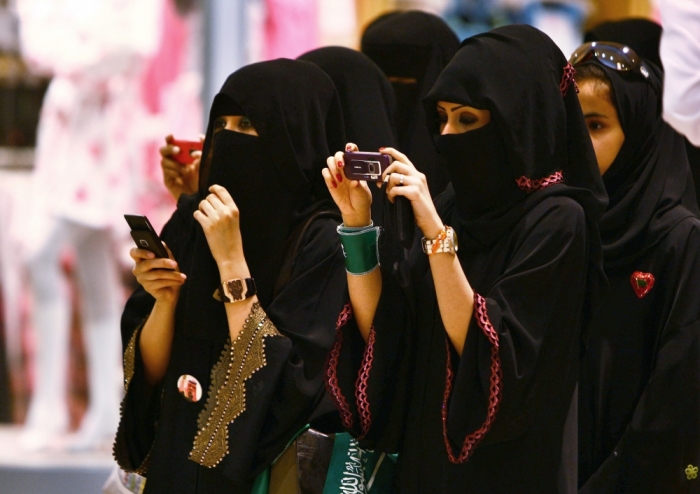Saudi Voters Elect 20 Women in First Election Open to Women

In Saudi Arabia's first-ever election open to female voters and candidates, 20 women have been elected for local government seats, according to initial results. The U.S. State Department called it a "historic milestone."
While women had previously been completely barred from elections, for the municipal election this time, more than 900 women registered as candidates, along with over 5,900 men.
More than 80 percent of the 130,000 female registered voters cast ballots, according to The Associated Press. In contrast, only about 44 percent of the more than 1.3 million men voted in the election.
The 20 women who have won are from 10 different regions, even as results in several more regions are yet to be announced. Four of them won from the capital city of Riyadh, and two each from the Eastern Province, where the minority Shia community is concentrated, and Jeddah.
One female candidate also won from a village called Madrakah, which is about 190 miles north of Mecca, Islam's holiest site.
Hatoon al-Fassi, who cast her vote for the first time, told BBC, "It feels great. This is a historical moment. I thank God I am living it… I am not really worried about the number, or to have any women winning. The fact that we have gone through this exercise is what really matters."
"The participation of women represents an important step forward in Saudi Arabia toward a more inclusive electoral process that will ensure all citizens are represented in a government accountable to all Saudi citizens," U.S. State Department spokesman John Kirby said in a statement. "As we have long said, the inclusion of all citizens in voting and governance is critical to the prosperity, stability, and peace of all nations, and we welcome this historic milestone."
However, law in Saudi Arabia, an absolute monarchy, doesn't allow women to drive, and gives men the authority to decide civil matters, including marriage and higher education, for them.
Even in this election, which was held for two-thirds of the 284 municipal councils, female candidates weren't allowed to meet with male voters for campaigning, according to AFP. Nor were they allowed to participate in debates on television.
At least three activists claimed in the run up to the election that they were disqualified from contesting.
One of them was Loujain Hathloul, who was earlier jailed for over two months for trying to drive into the kingdom from the UAE.
The late King Abdullah decided to allow women to participate in elections in 2011.




























